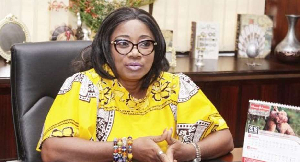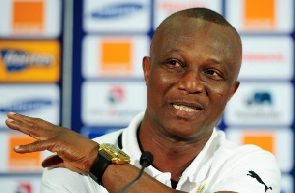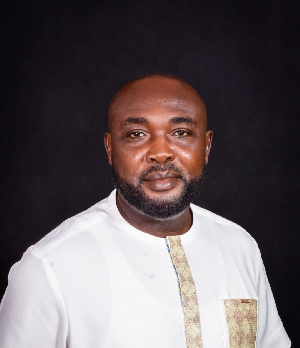Government is expected to secure a minimum 51% of the total revenue that would accrue from the extraction of oil in the country's territorial waters from 2009, Kwame Ampofo Twumasi Deputy Minister of Energy has disclosed in an interview with The Statesman. Government, he said, is currently negotiating with oil companies to secure the best deal for the nation.
His comments were in reaction to assertions from sections of the public that Ghana will earn a maximum of 10% of oil revenues. Also speaking at the national Stakeholders' Forum on Oil and Gas in Accra called by President Kufuor in Accra yesterday, the Managing Director of the Ghana National Petroleum Corporation, Moses Boateng explained that the revenue from the extraction will be diverse and would include royalties, carried and paying interests, income tax and additional oil entitlements.
He explained that the 10% revenue being talked about by some members of the public is only the royalties that the State will be taking from the oil companies for using its territory.
President John Agyekum Kufuor in his address at the forum said government sees the find as a national asset that must be managed by all. It is against this background that stakeholders were invited from all sectors of society to participate in the conference.
He said the extraction is expected to bring about a major economic boom and called on players in the banking and financial sector, the transportation, hospitality, legal, accounting services and the construction sector to prepare themselves for the numerous opportunities that are expected.
"For the immediate, we may have need of hired expertise wherever it can be found, but in order not to perpetuate dependence on such expertise, engagement contracts should highlight technological transfer to local staff in the most efficient manner within the shortest possible time," he emphasised.
President Kufuor called on stakeholders to ensure that the oil industry was effectively harnessed towards the achievement of immediate national goals of poverty reduction and the attainment of a middle income status by 2015.
In so doing, he said deliberate steps should be taken to develop in tandem traditional sectors of the economy. However, he cautioned them to avoid the creation of an oil dependent economy as has been happening in other oil producing countries.
Moses Boateng of GNPC announced that his outfit had targeted about $10 billion in upstream foreign direct investment by 2012. This, he said, could be achieved through aggressive promotion of the hydrocarbon potentials and the opportunities that would be generated from the oil discovery. According to him, the full field development cost could cost between $3 and $5 billion.
"GNPC hopes to become a world class corporation capable of making Ghana the fastest growing destination for investments in West Africa, to ensure aggressive development of human resource to meet the challenges in the oil and gas industry and also ensure that best development practices are undertaken for maximum output from the exploration fields," he declared.
According to Mr Boateng, GNPC would continue to deepen cooperation with its development partners to create the needed environment to meet the daily production target of 200,000 barrels oil.
Click to view details



Business News of Tuesday, 26 February 2008
Source: The Statesman
















